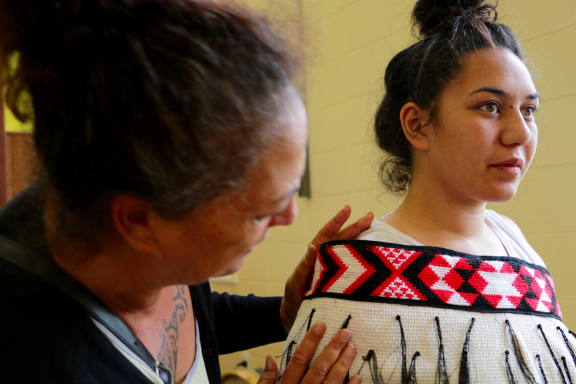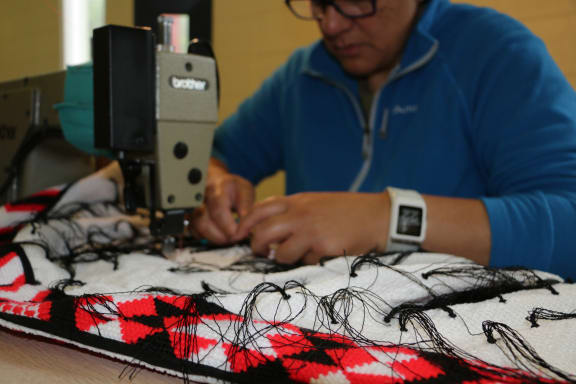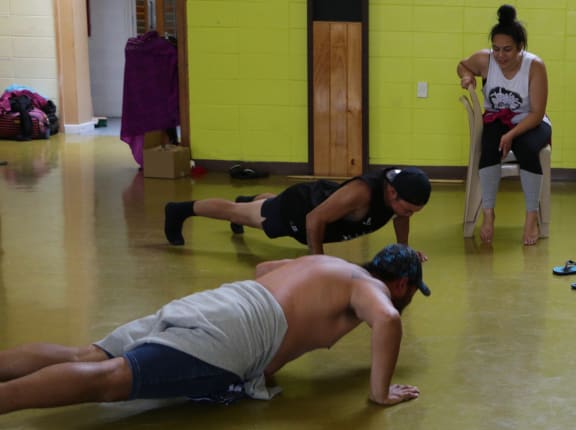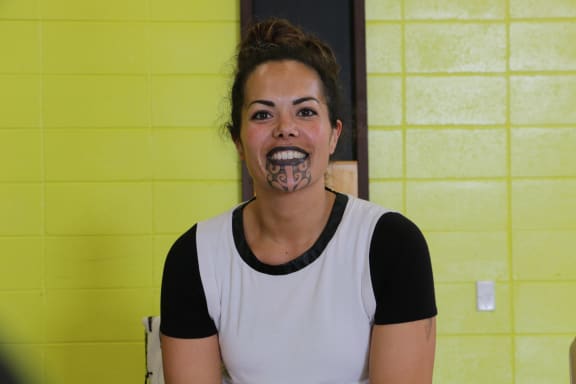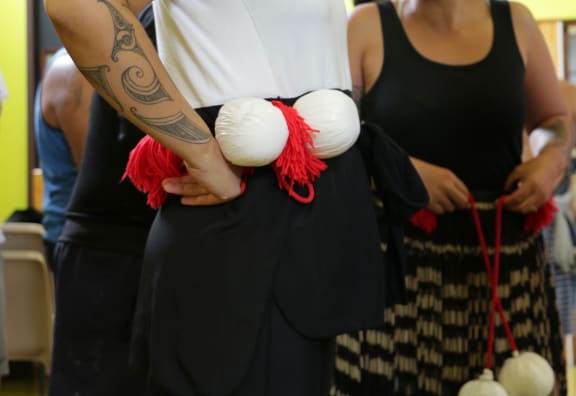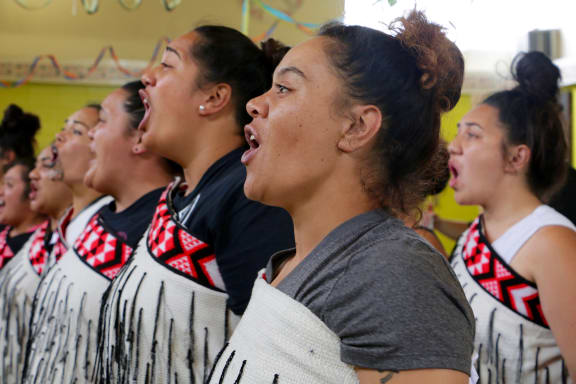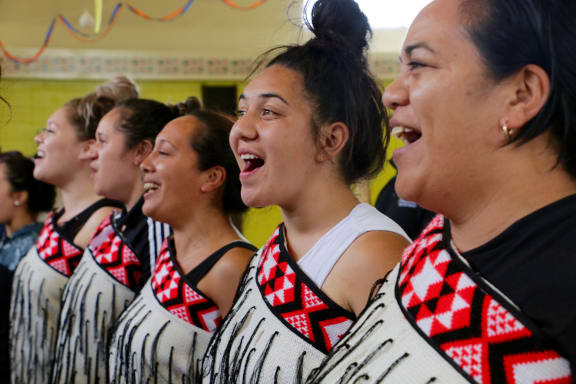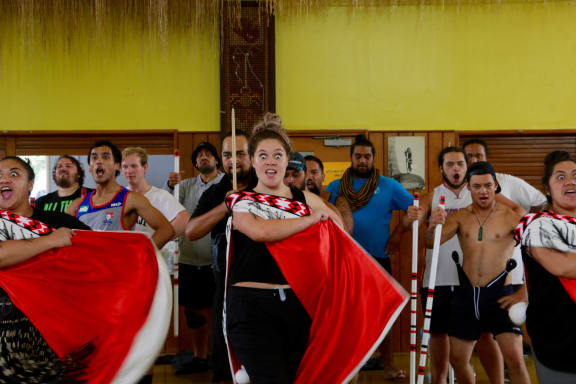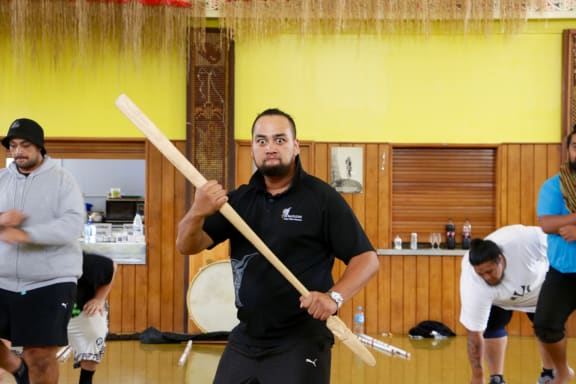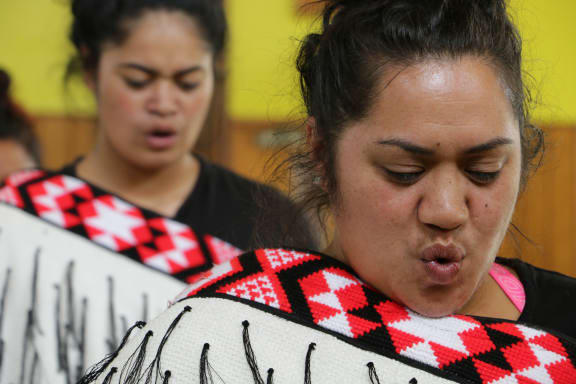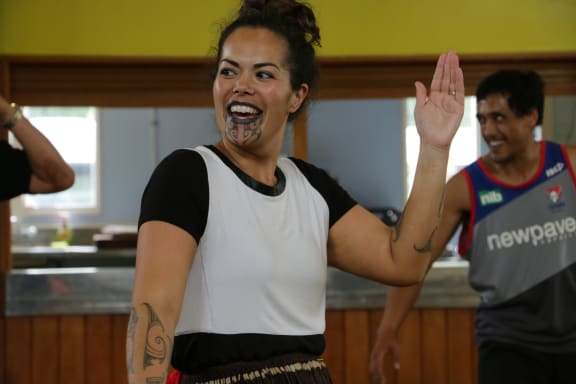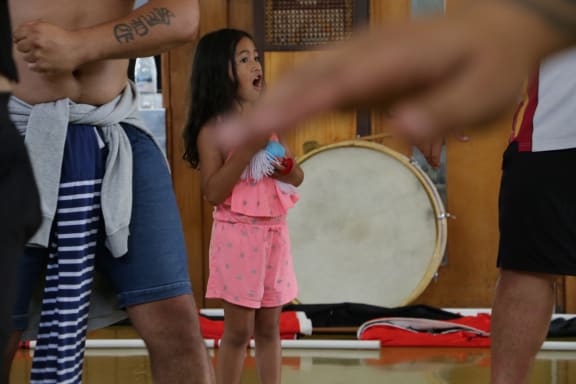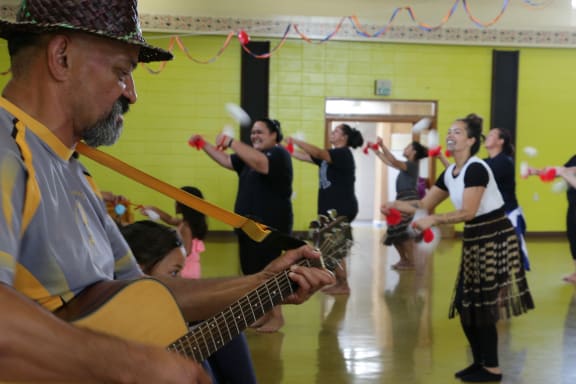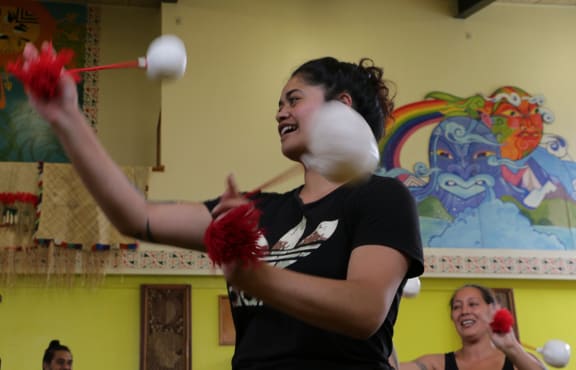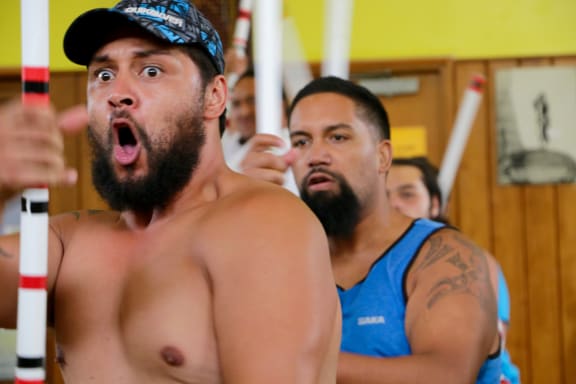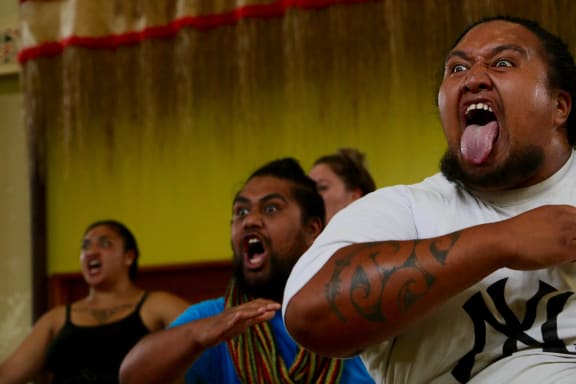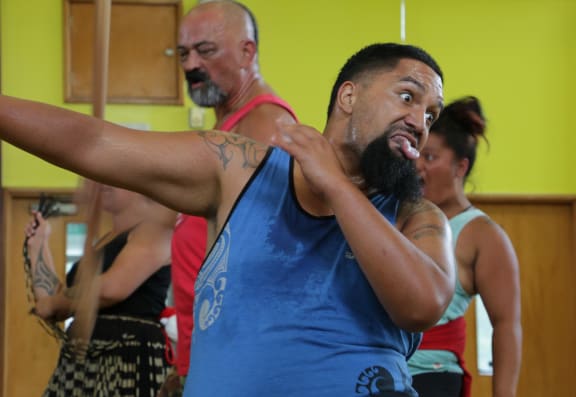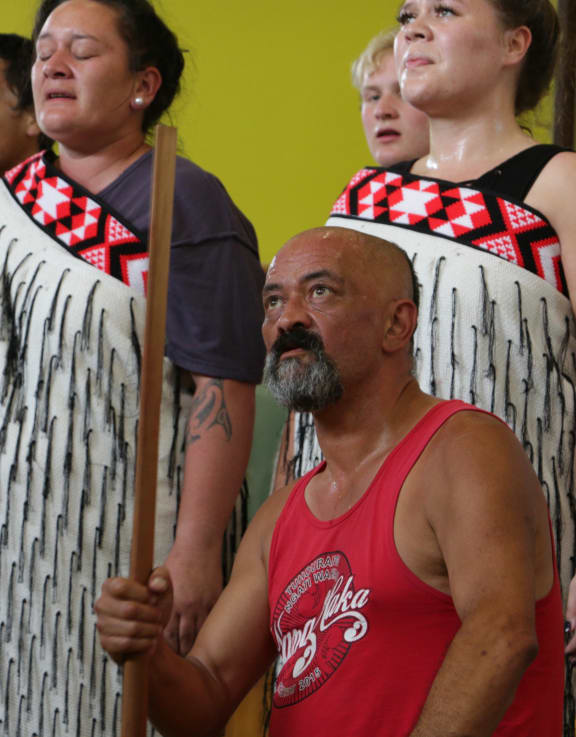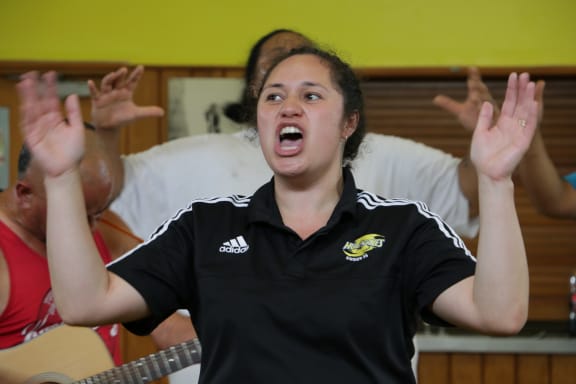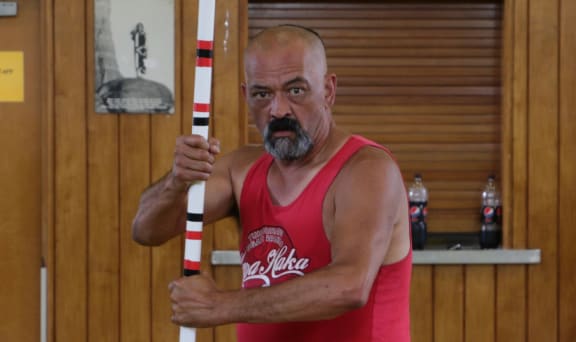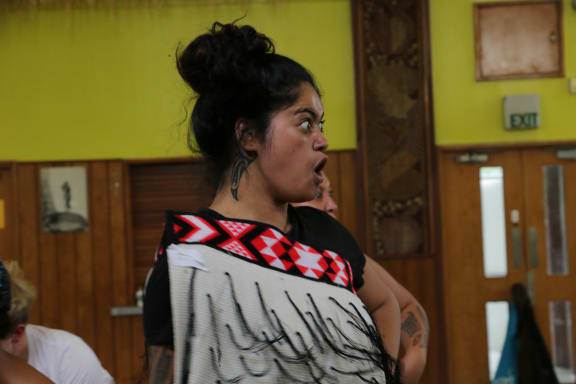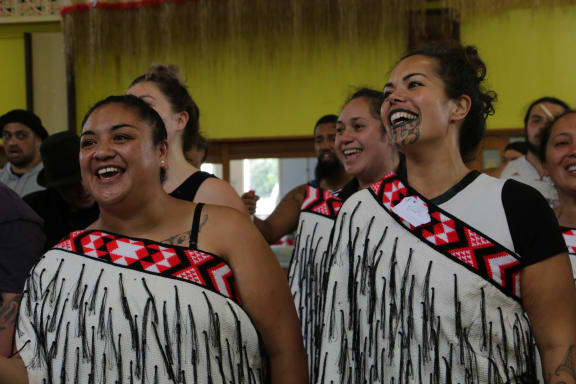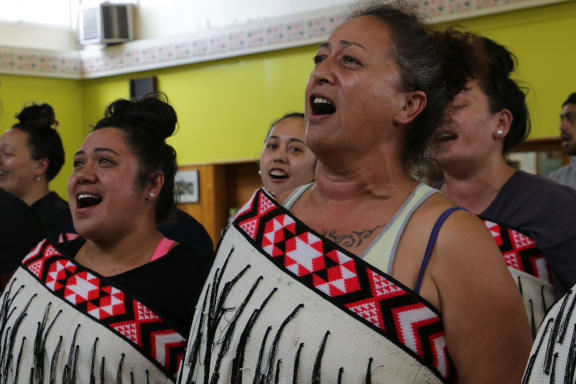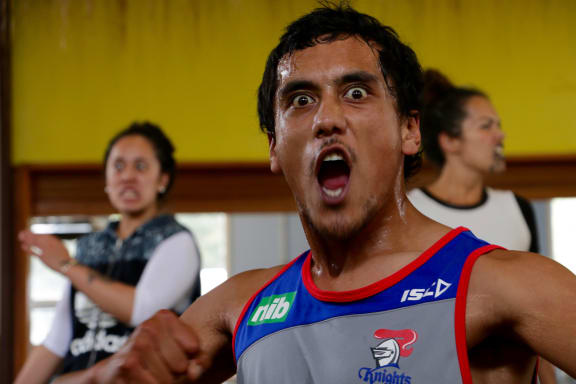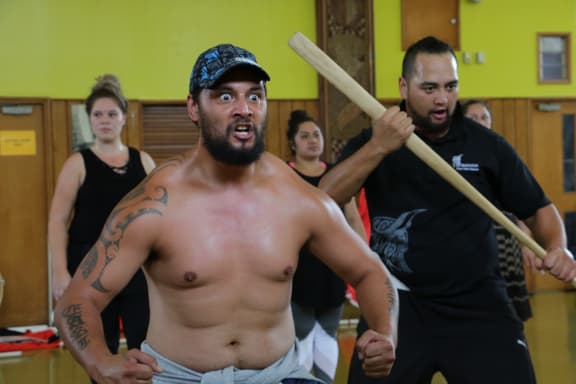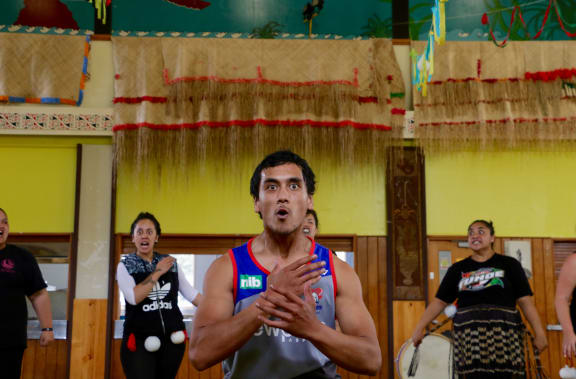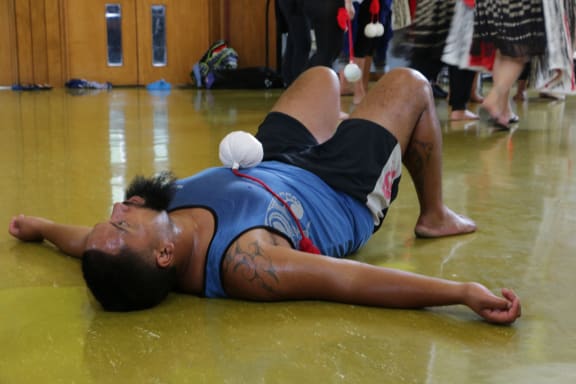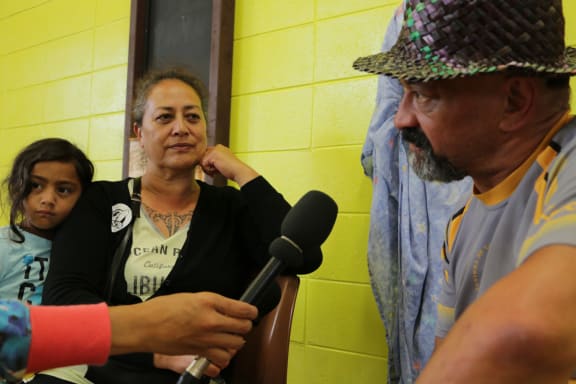Yadana Saw and Kirsten Johnstone are invited to Wainuiomata to witness the Wellington kapa haka group Ngā Taonga Mai Tawhiti prepare for the biggest event in the Māori performing arts calendar - Te Matatini.
It's a hectic Sunday afternoon at Wainuiomata Marae. In the main hall, people are sitting down to some much-needed kai and a rest. At the other end of the room, sewing machines and dressmakers are putting final touches to the kakahu (costumes). While another small group are cleaning all the bathroom and toilet facilities between lunch and practice.
The marae is a busy, bustling place and this is during the break time before the 40-odd members of Nga Taonga Mai Tawhiti spend the rest of the afternoon in the final rehearsals of their Te Matatini routine.
It’s a fortnight away from the biennial national kapa haka festival to be hosted in Hastings by local iwi Ngati Kahungunu. Te Matatini, which means “many faces”, began in 1972 as way to revitalise Maori performing arts and culture, now the event showcases Aotearoa and Australia’s best kapa haka talent.
This year, a record 47 kapa haka roopu, or groups, have just 22 minutes to impress the judges with their routine that encompasses waiata, poi and haka.
“Repetition is key” says Wiremu Wehi, the something of Nga Taonga Mai Tawhiti. Wi, as he’s known to everyone, is steeped in the traditions of kapa haka. Son of the “godfather of kapa haka” Ngapo ‘Bubs’ Wehi, Wi has grown up in the performance art form since his younger days.
“We had no options grown up. This [kapa haka] was it….Mum and Dad have been in the game for about 50 or 60 years.”
Nga Taonga Mai Tawhiti have been in been in wananga, or training, since May last year. Initially gathering on the marae once a month, as Te Matatini nears roopu members are expected to live-in from Friday evening to Sunday afternoon every weekend. Warm-up and rehearsal commence from 730am in the morning with mau rākau (Maori weaponry), hikoi (walking), touch rugby to awaken the group before breakfast when rehearsal goes on until lunchtime and later into the evening.
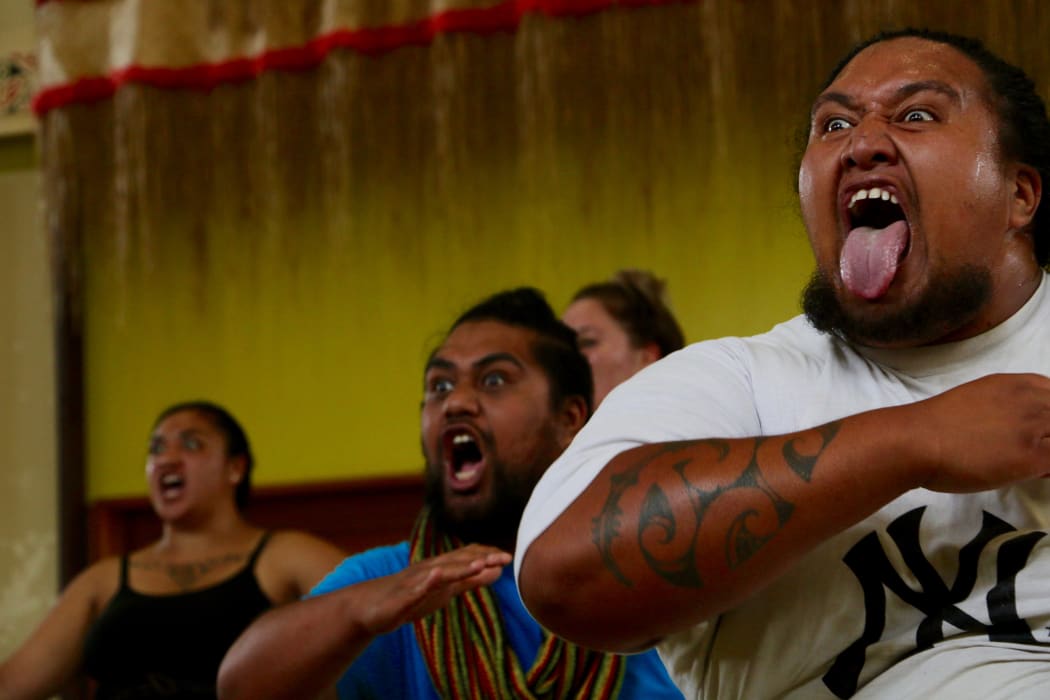
Nga Taonga Mai Tawhiti Haka Photo: RNZ Kirsten Johnstone
Between each of the rehearsals, kai haka taking turns doing push-ups and press-ups. However, towards the end of the day, most are drenched in sweat, lying on the floor catching their breath after their rigorous haka. Father of three and te reo Maori teacher Jono Belczacki, who was taking a moment between performances says it is a sacrifice to be in a kapa haka roopu at this level, “the wananga are taking its toll, you’ve got to to work a Monday to Friday job...I go to work more tired on Monday than I leave on Friday.”
But it is one that is worth it for him and his whanau.
“When I moved to Wellington I just found this whanau (Nga Taonga Mai Tawhiti) and stayed. It’s been awesome. It’s helped with everything as well, it’s helped me with my vocation. I wouldn’t have gone down that path (teaching te reo Maori) without the direction kapa haka has led me to.”
Jono and his partner Atareta Olsen have been part of Nga Taonga Mai Tawhiti since its inception in 2006. To them “club” is more than kapa haka it is about “being there for one another. They were there to support my family when my grandfather died. Even if was a new member and they had a funeral in their family. We are whanau as soon as they get here.” says Atareta, who working on a piece of embroidery for the neck sashes of performers’ korowai, after having made the hangi pie which was served at lunch, whilst also keeping an eye the many tamariki and mokopuna around the marae.
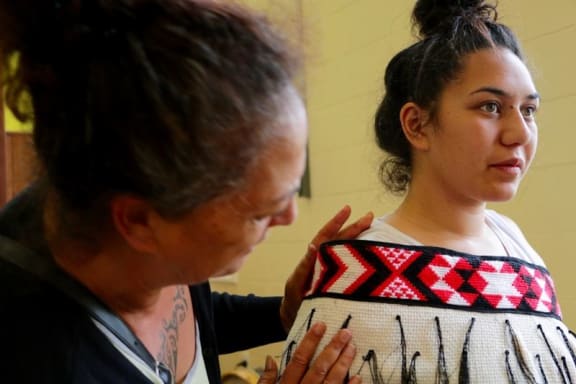
Member of the Wellington kapa haka group Ngā Taonga Mai Tawhiti Photo: RNZ
And that is exactly the kaupapa Wi and Merlene Maxwell-Wehi intended for their kapa haka troupe.
“Competitive kapa haka is the last thing from our minds...basically our kaupapa is based around whanaungatanga, or relationship-building and cementing those relationships..."
Merlene goes on, “when we started, there was a big need for the young people to learn the lifestyle of a marae. Because being brought up here in Wellington they didn’t have the luxury of going to marae.”
The group commence their 22-minute routine in an area of the hall marked out to the dimensions of the stage they will be performing on at Te Matatini, or “the thunderdome” as Wi likes to call it. The singing and haka performances are silently mouthed to preserve group member’s voices for the last two run-throughs before this week’s wananga draws to a close.
When the roopu are ready for those last few performances, the powerful harmonies of Nga Taonga Mai Tawhiti soar, it is both arresting and incredibly moving to behold.
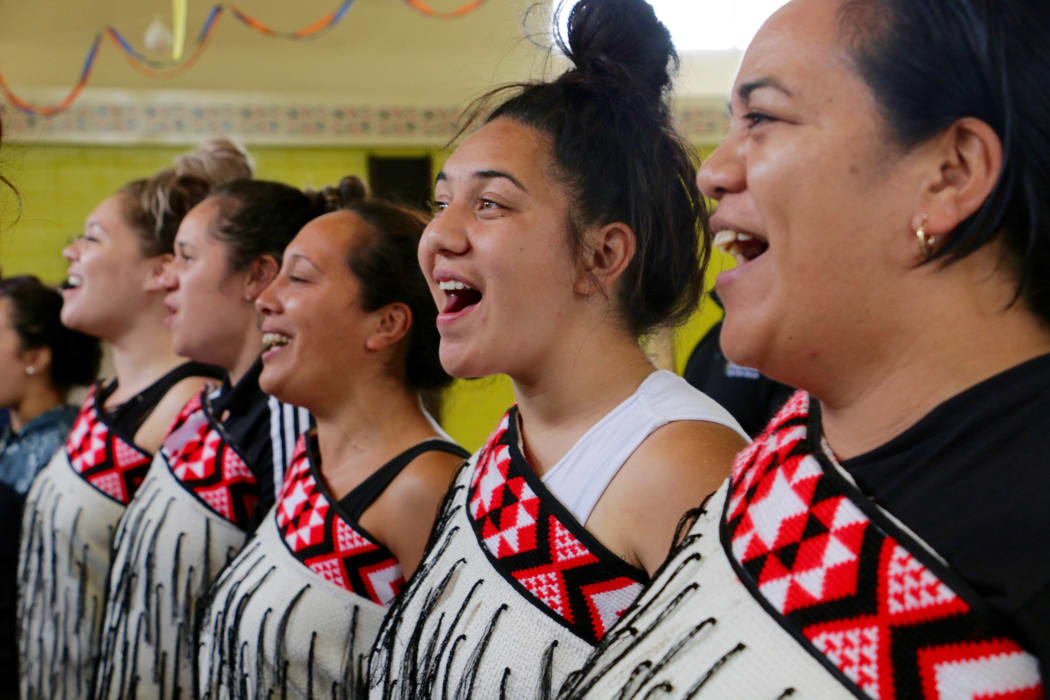
Nga Taonga Mai Tawhiti Photo: RNZ Kirsten Johnstone
Merlene explains that the group’s sound is one of their unique strengths.
“Everyone seems to talk about Nga Taonga’s sound…we’ve trained our singers to sing with power and in harmony...how to breathe when you’re singing,”
She adds, “And that’s because we’ve got to bring the words to life.”
